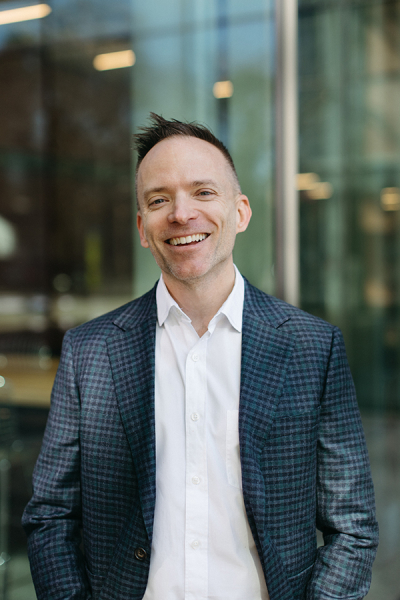Community, Leadership, Experimentation, Diversity, & Education
Pittsburgh Arts, Regional Theatre, New Work, Producing, Copyright, Labor Unions,
New Products, Coping Skills, J-O-Bs...
Theatre industry news, University & School of Drama Announcements, plus occasional course support for
Carnegie Mellon School of Drama Faculty, Staff, Students, and Alumni.
CMU School of Drama
Thursday, September 29, 2022
Ryan Donovan Is Making The Stage An Inclusive Space
Theater Studies: Ryan Donovan, assistant professor of Theater Studies, can pinpoint the moment he decided to become a dancer.
“It all began at the National Theater in Washington, D.C., when I was seven years old and my mom took me to see the touring production of ‘Cats,’” he said. “I was sitting on the aisle, and when those dancers came into the auditorium dressed as cats, one of them came up to me and played with my clip-on tie. I was hooked.”
Subscribe to:
Post Comments (Atom)

4 comments:
There is definitely an unfair casting bias towards able-bodied individuals who fit a certain physical expectation and have a specific skill set. And that has practical reasoning behind it – Broadway shows are supposed to be the best of the best, and it makes sense that such rigorous standards often seek out triple threats. However, people with disabilities tend to be left behind or treated as token characters, and we often tend to find ourselves in a casting bubble where people think “well, this is what this character has always looked like; so this is how they need to look for us.” I’d be curious to read Broadway Bodies when it comes out and read a little more about the history of this expectation; as it outlines in the article, the intersection between scholarly study of theatre and theatre performance is necessary to build a frame for improvement moving forward.
This article was really interesting because I hadn’t really thought about the idea of a specific theatre-centric “broadway body” type of casting preference. I have been somewhat aware of a larger movement to call out body type preferential casting in performance mediums like ballet, especially for body types that are impossible to get in a healthy manner. However, I hadn’t fully connected the dots between that preferential treatment and the way that roles are supposed to be filled. It’s interesting to think about the connection between dance and Broadway as it is today. I think it’s really important to change or start the conversation about the open body type discrimination that most theatres today still partake in. Part of what healing our beauty standards has to look like includes seeing people of all sizes and shapes in all spaces where they can be. I think that we are definitely making a few more strides to become more inclusive, but those strides are few and far between. There is a lot more to raise awareness about and I think we need to start doing that.
I really disliked the name of this article but loved the content. Making the stage an inclusive space is not the job or accomplishment of a singular person and it shouldnt be advertised as such. Ryan Donovan did make great contributions to it and is doing spectacular work on the inclusion front. The theatre industry has such a long way to go to become inclusive. The first type of inclusion is for actors which this article focuses on. But another form of inclusion is for our backstage people, when was the last time you worked backstage with someone who is differently abled than you? Who may need some accommodations to get their job done but are the most passionate about it. What type of person domincates your section of the field and why? Why is there not a wider range of human experiences in the room where it happens and how can we get there?
Ryan Donovan, a performer and an academic scholar, is the highlight of this article. He is said to be a queer, masculine person who is actively fighting the stigma within the professional theatre/performance world to fit a specific archetype of a person; skinny, white, feminine, etc. This is such an important topic to talk about, especially within the musical theatre/dance fields. We often see people within a specific archetype cast within shows, and these casting choices often lead to the under-representation of marginalized groups. This also inherently leads to the under-encouragement of people within these groups to pursue careers within these fields, as they are often subject to mass amounts of judgment, and are often ostracized within the casting process. It is so great to read about a professor actively seeking to teach against these social norms, especially within such a stigmatized field, and I wish him the best of luck in continuing to challenge the social image of theatre/performance arts.
Post a Comment